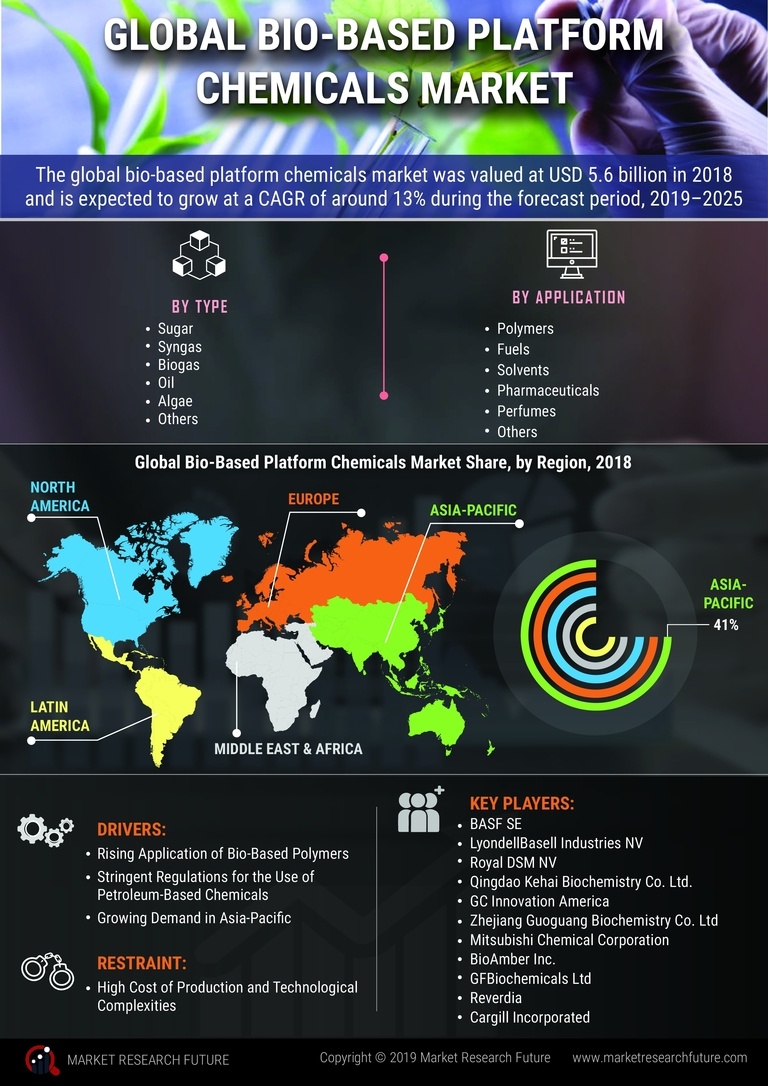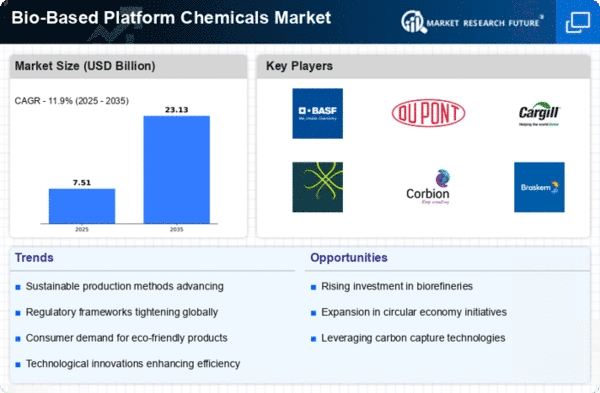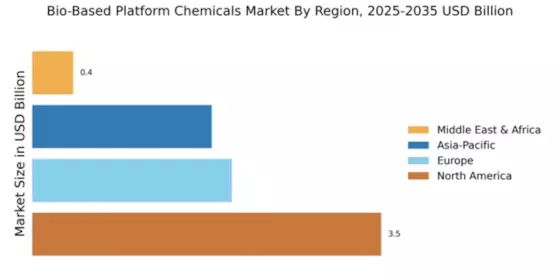Increasing Consumer Awareness
The Bio-Based Platform Chemicals Market is experiencing a notable shift in consumer preferences towards sustainable and eco-friendly products. As awareness regarding environmental issues escalates, consumers are increasingly opting for products derived from renewable resources. This trend is reflected in market data, which indicates a growing demand for bio-based chemicals, projected to reach USD 30 billion by 2027. Companies are responding by reformulating their product lines to include bio-based alternatives, thereby enhancing their market competitiveness. This consumer-driven demand is likely to propel the growth of the Bio-Based Platform Chemicals Market, as manufacturers strive to align their offerings with the values of environmentally conscious consumers.
Supportive Government Policies
Government policies and regulations are playing a pivotal role in shaping the Bio-Based Platform Chemicals Market. Many governments are implementing supportive measures, such as tax incentives and subsidies, to encourage the adoption of bio-based chemicals. For instance, several countries have established mandates for the use of renewable resources in chemical production, which is expected to drive market growth. The Bio-Based Platform Chemicals Market stands to benefit from these initiatives, as they create a favorable environment for investment and innovation. This regulatory support is likely to enhance the competitiveness of bio-based products compared to their fossil fuel-derived counterparts.
Growing Industrial Applications
The Bio-Based Platform Chemicals Market is witnessing an expansion in its industrial applications, which is contributing to its growth. Industries such as automotive, packaging, and textiles are increasingly incorporating bio-based chemicals into their production processes. For example, the use of bio-based plastics in packaging is projected to grow at a CAGR of 12% over the next five years. This trend indicates a shift towards sustainable materials, driven by both consumer demand and regulatory pressures. As more industries adopt bio-based alternatives, the Bio-Based Platform Chemicals Market is likely to experience a significant increase in demand, further solidifying its position in the chemical landscape.
Rising Investment in Research and Development
Investment in research and development (R&D) within the Bio-Based Platform Chemicals Market is on the rise, as companies seek innovative solutions to enhance production efficiency and reduce costs. This trend is underscored by the fact that R&D expenditures in the bio-based sector have increased by approximately 15% over the past few years. Such investments are crucial for developing advanced technologies that can optimize the conversion of biomass into platform chemicals. As a result, the Bio-Based Platform Chemicals Market is likely to witness a surge in new product offerings and improved production processes, which could further stimulate market growth.
Technological Innovations in Production Processes
Technological innovations are transforming the Bio-Based Platform Chemicals Market by enhancing production processes and reducing costs. Advances in biotechnology and chemical engineering are enabling more efficient conversion of biomass into platform chemicals. For instance, the development of new catalysts and fermentation technologies has improved yield rates significantly. Market data suggests that these innovations could reduce production costs by up to 20%, making bio-based chemicals more competitive with traditional fossil fuel-based products. As these technologies continue to evolve, the Bio-Based Platform Chemicals Market is poised for substantial growth, driven by increased efficiency and lower barriers to entry for new market players.

















